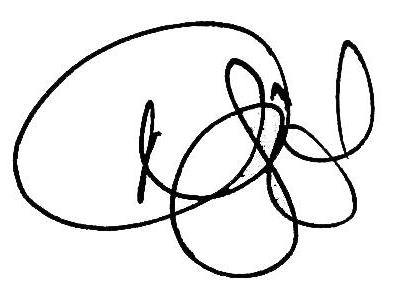Wednesday, April 29, 2020 | Yom Ha’atsma’ut | 20th day of the omer – yesod she b’tiferet
Read through to the end, because there is an amazing treat in store when you get there….!
Dear All,
First, just a brief Hazon news update.
The Isabella Freedman Jewish Retreat Center is closed and, like lots of organizations, we don’t know when or how or in what way we will re-open. We’re using this time to figure out not only how to maximize impact in the near term, but also how to use this crisis to clarify and strengthen our work in the longer-term.
And, meanwhile, Hazon staffers are working hard and well in this challenging moment.
Teva’s Arielle Aronoff is helping day schools with online teaching. We’re planting and preparing at Adamah. Mike Davino and his crew are starting to make some needed repairs at Isabella Freedman.
In Detroit, Wren Hack and Rabbi Nate DeGroot and our team have been helping on the ground, providing food, and help in growing food, for people and communities in need.
And last week’s #SoundTheCall clearly hit a chord. The feedback was amongst the strongest from anything we have done. Hazon has a strong record of bringing new ideas and programs to life. We and Earth Day Network intend that this will become an important annual multi-faith platform, focusing ultimately on the three things that the world needs everyone to do: First, make some further change in your own behavior, to reduce your own footprint; secondly, give money and time to organizations that are working for a more sustainable and equitable world; and thirdly, amplify your voice, both as a citizen and within any organization of which you are a part.
So – April 22nd 2021; 10am to noon, ET – #SoundTheCall. Put it in your calendars now…
And now, five thing that will make you feel better:
1. Give a gift, right now – however small – to provide life-saving supplies, for life-saving workers.
This comes first in the list because, truthfully, we feel – and we are able to take legitimate steps to make our own lives better – when we first try to help others.
The backdrop to this is that one of many lessons of this crisis is the need for (1) strong central institutions, and (2) ethical and tactically flexible leadership within those institutions.
Not all of this country’s central institutions have both characteristics, but one that has risen powerfully to the challenge is the Jewish Federations of North America. They have played an absolutely critical role in helping a huge number of Jewish institutions (Hazon included) get SBA-backed loans, not least because they were intimately involved in both helping to craft the legislation, and then disseminating critical information on how to access it.
Behind the scenes, separately from that, they have been finding, buying and distributing PPE – personal protective equipment – to staff in nursing homes. The people who look after our parents and grandparents are cleaning and feeding old people who can’t care for themselves, they work hard day in and day out, for low pay – and then this crisis hit and far too many of them have lost their lives because of the absence of proper kit. JFNA leapt into action. Many people are alive today because of what they have been doing.
Their campaign to support this work is launching today. Liz and I, and many of Hazon’s staffers and board members have already made donations. Please click here, right now, to join us in giving a gift to this campaign. I promise you: you will not feel in some sense “poorer,” if you give a gift (what you’d have spent at Starbucks in a week, or going out for a meal with a friend, or whatever), you will genuinely feel better about yourself to know that, even in some tiny way, you have striven to be part of the solution.
2. Read Botany In A Day, by Thomas Elpel.
To the extent you can, being amidst sunlight and living things, in all their glorious shapes and sizes, is deeply nourishing. And learning about the world enriches the experience. I am in awe of – and jealous of – my friends who seem to be fluent in the natural world. It drives me crazy that I can identify more car brands than I can trees, after all these years. Names in and of themselves don’t necessarily matter, but being able to frame trees and plants is important and helpful. A dear friend recommended Botany In A Day, and I am loving it, and commend it. (And here’s a 45-minute video of Thomas Elpel teaching from the book.)
(Also – separately – we are all, it seems, spending more on Amazon. If you are not yet part of their program which gives 0.5% of your spend to a designated charity, please join it today, and use it, and designate Hazon as your beneficiary. The amounts are tiny, really tiny, but if you and your family and your friends all support us in this way, these little amounts will indeed mount up. Click here, right now, to set this up!)
3. Listen to my conversation with the great Alon Tal, last weekend.
This was the third installment in our Sunday series, After The Plague: Nigel Savage in conversation with… Yesterday was Yom Hazikaron, Israel’s memorial day, and today is Yom Ha’atsma’ut, Israel’s independence day, and if you want to understand some of what’s happening in Israel at the moment, with an added dollop of inspiration and provocation, then listening to Alon will help you do that. Alon has already accomplished more in half a life than most people manage after several reincarnations – and there’s a better than 50/50 chance he’ll end up as an MK (a Member of the Knesset) in the next few weeks. Listening to him is quite literally both fascinating and inspiring.
(And click here to learn more about my upcoming conversation this Sunday with the Passows.)
4. Quit coffee!!
OK.
I realize that in saying such a thing I am testing blasphemy and heresy to their limit, even in this tolerant and inclusive world.
But bear with me.
The data is fairly clear that coffee is good for us in a number of ways.
But I often do a pre-Pesach cleanse, and thank G!d, I did one this year. I’m still off coffee, seven weeks later. (And I don’t drink “soda” – Coke, or anything like that, and haven’t for many years. Coffee was the only caffeine I ingested.) I am calmer, I’m more focused, and I’m sleeping better. Caffeine does spike your energy – but then it crashes it. The absence of spike-crash-spike-crash-spike-crash turns out to be very helpful. So, if you don’t feel the need to quit coffee, then of course carry on. Of our many addictions it’s not one of the worst. But if you drink coffee thinking that it somehow helps you, and in any way have zooms and crashes of energy, or are struggling to sleep, then my postcard back to you from this particular trip is – just quit coffee and caffeine, and in due course you’ll feel better.
(PS: please don’t tell Ruth Messinger I wrote this. I don’t know if she drinks coffee, but she does drink caffeinated soda, and if I tried to take one away from her she’d likely punch me. And, as you know, she still packs a fabulous wallop.)
I’d add: as well as quitting caffeine, I’m also only having sugar and booze on Shabbat (which is, after all, two days out of seven, in practice.) But if I’d come into this whole crazy period on caffeine and sugar and booze I fear that my daily routine would have become six cups of coffee for breakfast, a tub of Ben & Jerry’s for afternoon tea, and then a large scotch to unwind in the evening.
Overall: many people right now are coping with extraordinarily challenging circumstances, and if you can handle caffeine or booze or sugar in moderation, then keep at it. But if you can find a way to cut one or more out, you’ll handle the other challenges better.
5. Rabbi Pesach Stadlin, blowing a flofar? A shlute??
OK: you made it this far. A final big big treat. We had more guests for #SoundTheCall then we were able to showcase, and one of them was Eden Village’s remarkable Rabbi Pesach Stadlin. If you made a list of the ten most inspiring people in the world, it would start with Greta Thunberg, Pesach and Yoni Stadlin, and then we could argue about the other seven. This was a video that Pesach made, in Israel, for #SoundTheCall. It is great and amazing and inspiring all the way through…. And then the coup de gras is him playing Nomi Shemer’s beautiful da lecha on a completely unique new musical instrument!!!!!
Click here to listen to Pesach…
So – huge thanks to everyone.
And I know, of course, and feel, that this is very hard. A friend’s sister died yesterday, at a young age, almost certainly from the virus. Another friend’s father is fighting for his life in the ICU. People have lost family members, or their jobs, or are coping with illness. It is scary and hard.
But this is why we have to have vision. It is why we have to give, as we can, and support those around us. It is why we have to work for a better world. And it is why we should celebrate both Shabbat, and the natural world.
Shabbat shalom,

Nigel
PS And pencil in your calendar, three future dates that will educate, nourish, provoke and inspire…
This Sunday, May 3rd, 10:30am ET, my guests on After The Plague will be The Fabulous Passow Trio [which is what they’d be called if they were classical musicians] – Rabbi Dani Passow, Nati Passow, and Rabbi Shuli Passow.
Sunday, May 10th [back at our normal time of noon] my guests will be Rabbis Phyllis Berman and Arthur Waskow.
Each of these five guests has their own unique take on the world and their own distinctive journeys, but they have in common (1) a strong and grounded sense of Jewishness and (2) a commitment to – and a track record of – taking that commitment out into the world in real and serious and important ways.
Finally, Friday, May 29th is chag hakatzir (the festival of reaping), aka yom habikkurim (the day of the first fruits) aka… the first day of Shavuot. From 1pm to 4pm PST – there’s going to be a very special celebration created together by Hazon, Pearlstone, Wilderness Torah, Urban Adamah, and friends, combining planet earth, Jewish teaching, wisdom to make the world better, and music. Mark your calendars now!
